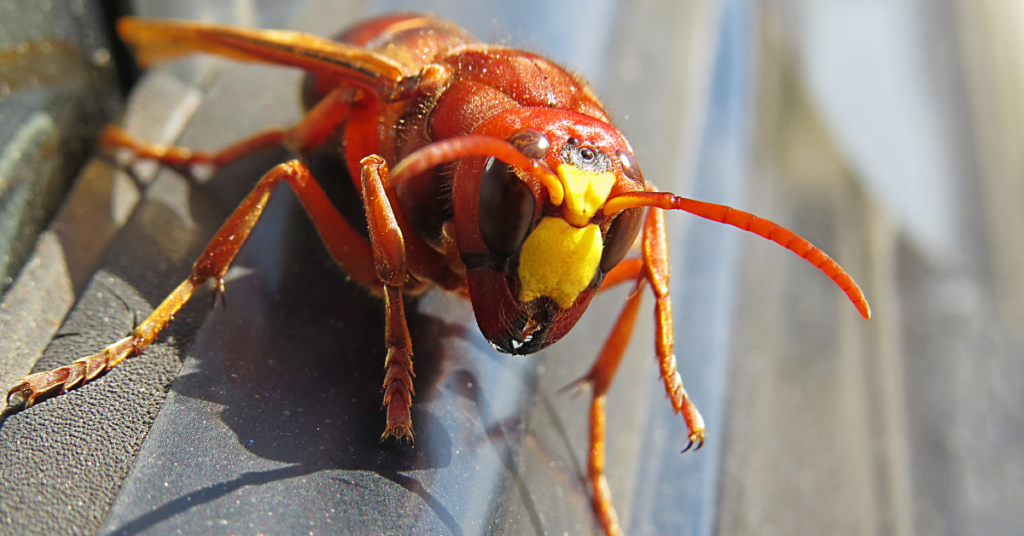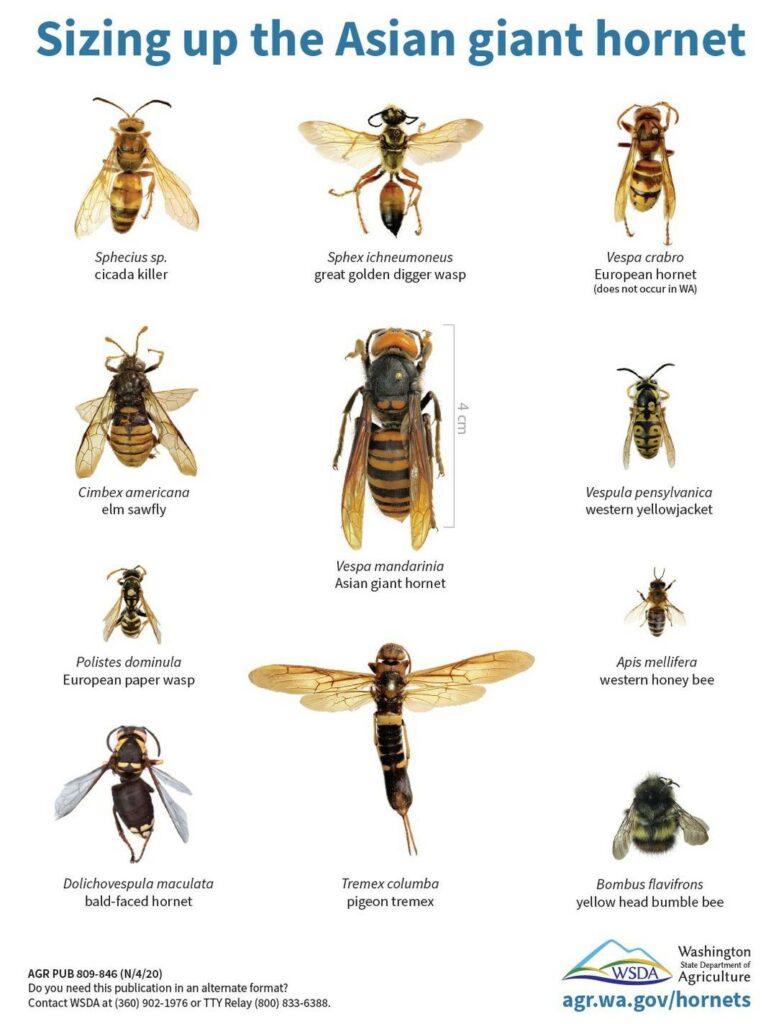
Vespa Mandarinia, a species of hornet dubbed as murder hornets, was first discovered in Washington by a beekeeper and has alarmed agricultural scientists. First, the coronavirus, now ‘murder hornets’? But, is it something that we really need to worry about? Let’s first try and understand more about ants, hornets, and wasps.
Every year, mosquitoes are responsible for millions of yearly deaths worldwide from malaria, dengue fever, and other diseases, according to the World Health Organization. Last year, the CDC reported at least 15 people died in the U.S. from Eastern Equine Encephalitis, a rare disease spread by mosquitoes. (CBS News 2020)
Hornet, wasp and bee stings kill on average 62 people a year in the United States, according to the Centers for Disease Control and Prevention. But, no “murder hornet” deaths have been reported in the U.S. (CBS News 2020)
Still, the world’s most gigantic hornets do decapitate entire hives of honeybees, and that crucial food pollinator is already in big trouble. The number of U.S. honeybees has been dropping for years, with the winter of 2018-19 one of the worst on record. That’s because of problems such as mites, diseases, pesticides, and loss of food.

What is a ‘Murder Hornet’?
The Asian giant hornet is a big, mean-looking insect with a potent sting. Their queens can grow to be up to two inches long, and their quarter-inch stingers can pierce usual beekeeping attire. They are also voracious predators capable of massacring entire honeybee hives in a matter of hours decapitating thousands of the hive’s adult bees and fleeing with the helpless larvae to feed the hornets’ brood.
Nobody can say for sure know how these hornets arrived in the United States. But the discoveries set off alarms, and they began to be infamously known as ‘Murder Hornets’.
The sting of the Asian giant hornet is far more painful and toxic than that of a honeybee. Researchers have likened the sensation to having a hot nail driven into one’s flesh. However, experts insist that the giant hornets are only dangerous if provoked and tend to keep to themselves unless threatened. Attacking in groups, they can kill humans, but they are mostly hunting for honeybees. (Smithsonian Mag)
What Effect Could They Have on Bee Population, Ecosystem, Etc.?
These predators, native to East Asia and Japan, are infamous for decimating honeybee colonies. The queen hornet usually emerges in April to begin feeding and building up her nest of worker hornets. By late summer or early fall, her worker hornets start foraging for food, swarming beehives, cutting off bees’ heads, and sucking out the hive’s larvae and pupae to bring back to their burgeoning nest. (LA Times)
When scouts head out to find food sources, they secrete a unique scent on honeybee hives so that their fellow hornets can discover it and team up to attack. They are the only known species of wasp to apply a scent to food targets, according to the entomology journal Psyche. (Mashable)
Honeybees in the United States already face existential threats of increased pesticides, loss of habitat, and a changing environment. A newly introduced hornet could endanger the bee population and have a domino effect on the American food supply. Fruits, vegetables, and even plant-grown animal feed could suffer without enough pollinating bees. (LA Times)
Asian giant hornets are also exceptional fliers. They can reach speeds of up to 20 miles per hour and can travel several miles in a single day. Luckily, they are less aggressive when they are far from home. But if they spot a honeybee colony near you, you could be in danger as they attack that area and defend it from other potential threats. (Mashable)
Don’t worry; they are not invincible!
It can be fatal if people are allergic to the venom of Asian giant hornets or are stung by multiple hornets. So, when you spot a murder hornet, it’s best to contact state officials rather than trying to trap the insects yourself.
It’s also possible to get rid of murder hornets. There are numerous methods of getting rid of Asian giant hornets using poison, controlled fires, baited traps, and screens. Not only can humans do a lot to get rid of these pests, sometimes, but honeybees can also outnumber these giant killers. A bunch of honeybees will completely cover the murder hornets and kill them by increasing the heat within the tangle of bodies and exerting carbon dioxide. (Mashable)
Conclusion
If you know you have an allergy to bee stings, you’ll want to follow the protocol prescribed by your primary care physician. If you are stung by an insect and experience facial swelling or difficulty breathing, seek emergency treatment immediately.
The terminology associating “murder” regarding Murder Hornets belongs to their veracious appetite for honeybee larvae and the honeybees who stand between the hornet and the larvae. In this instance, it’s a fight to the death of the bee or hornet.
Losing honeybees puts our food supply at critical risk. If you see what you think may be a “Murder Hornet”, contact your agricultural extension agency and report the sighting to them. A resource for Texans can be found visiting this website associated with Texas A&M University. https://agrilifeextension.tamu.edu/
Works Cited
Fox, A., 2020. No, Americans Do Not Need To Panic About ‘Murder Hornets’. [online] Smithsonian Magazine. Available at: <https://www.smithsonianmag.com/smart-news/invasion-murder-hornets-180974809/>
Main, D., 2020. ‘Murder Hornets’ Have Arrived In The U.S.—Here’s What You Should Know. [online] Nationalgeographic.com. Available at: <https://www.nationalgeographic.com/animals/2020/05/asian-giant-hornets-arrive-united-states/>
News, CBS “Forget ‘Murder Hornets,” Experts Say — This Is the Real ‘Murder Insect.’”
CBS News, CBS News, 11 May 2020, www.cbsnews.com/news/murder-hornets-hype-mosquitos-murder-insect/.
Pinho, Faith E. “They’re Not Really Called ‘Murder Hornets.’ And They’re Probably Not as Bad as You Think.” Los Angeles Times, Los Angeles Times, 6 May 2020, www.latimes.com/science/story/2020-05-06/murder-hornets-theyre-probably-not-as-bad-as-you-think.
Beck, Kellen.“Everything You Need To Know About ‘Murder Hornets’.” Mashable, 4 May 2020, in.mashable.com/science/13702/everything-you-need-to-know-about-murder-hornets.
















